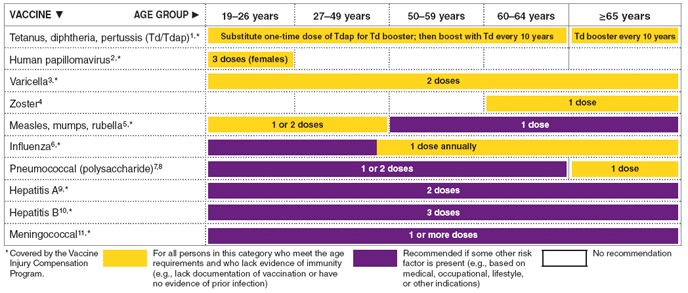This is our nurse Melissa’s first blog post! Yay!

August is an exciting month here at Family Care because August is National Immunization Awareness month! This includes two of my favorite things: vaccines and patient education! I love vaccines so much that I spent three days of my vacation at the Clinical Vaccionology Conference last fall to learn more about vaccines. Once I get started talking about vaccines, why they are needed, and how they work, it’s hard for me to stop.
Why do I do get so passionate about vaccines? The main reason is because they prevent diseases and it’s probably the quickest and easiest way to improve your health. There are so many stories of people who have severe complications from diseases that could have been prevented – take polio, for example. Almost every adult over the age of 40 knows someone that was affected by polio but, now in 2016, it’s almost entirely eradicated in all but three countries in the world as a result of vaccinations to prevent the disease.
I also enjoy having conversations with patients regarding their fears and concerns about vaccines and giving them the information available to make educated decisions regarding their health. Throughout the month we’ll have different posts that focus on different vaccines and the concerns that surround them.
This week, our focus is on adult immunizations.
The need for vaccines does not end in childhood. All adults need vaccines based on their age, lifestyle, occupations, travel plans, and medical conditions. Adult vaccinations include Influenza, Tetanus/TDaP, Shingles, Pneumococcal, HPV, and Hepatitis A and B.

Each year thousands of adults are hospitalized or die from vaccine preventable diseases. According to the National Public Health Information Coalition an average of 226,000 people are hospitalized due to influenza and between 3,000 and 49,000 people die of influenza and its complications, the majority are among adults. 900,000 people get pneumococcal pneumonia every year, leading to as many as 400,000 hospitalizations and 19,000 deaths. In the U.S., HPV causes about 17,000 cancers in women, and about 9,000 cancers in men each year. About 4,000 women die each year from cervical cancer. All of these incidents could be prevented with proper vaccination.
It is not only important for adults to receive vaccines to protect themselves, but also to protect others in the community by preventing the spread of disease to those with weakened immune systems that may be more susceptible to the disease. If you aren’t sure if you are up-to-date on your vaccines, you should contact your healthcare provider today to help protect yourself and decrease the prevalence of these preventable diseases.
For additional information the CDC has great website on vaccines and the diseases they prevent. You can even take a quiz to find out what vaccines you might need. Feel free to leave your questions in the comments and I’ll do my best to answer them! #VaxWithMe #NIAM16
